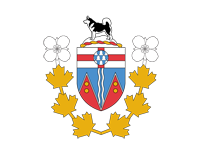Commissioners of Yukon 1948 to 2023
After World War II, there was a marked increase in infrastructure development and investment into Yukon’s economy. This was in part due to an increase in mining production and the construction of the new Alaska Highway that connected Yukon to the South. This surge in economic development brought an increase in duties, responsibility and workload for Yukon's Chief Executive Officer, leading to the reinstatement of the title of Commissioner.
Angelique Bernard
Angelique Bernard was Commissioner of Yukon from 2018 to May 30, 2023. Before becoming Commissioner, she worked as a development officer with Les EssentiElles, a non-profit organization that represents the interests of the Yukon’s French-speaking women and operated her own translation firm, Traduction ABC Translation.
Madame Bernard has an extensive volunteer history in the Yukon: President of the Board of Directors of the Association franco-yukonnaise (AFY); a member of the National Board of Directors of the Canadian Women’s Health Network; President of the Whitehorse Women’s Soccer Association, and an athletics coach with the Yukon Special Olympics in 1996 and 1997.
Born in Brossard, on the South Shore of Montreal in 1972, Madame Bernard is married to David Comchi and they have 2 children, Sébastien and Samuel. The family enjoys camping, biking, playing soccer, tennis and travelling.

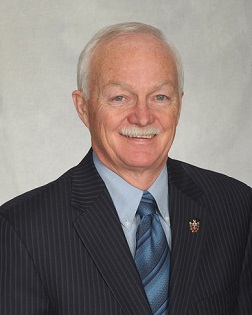 Douglas Phillips
Douglas Phillips

Commissioner from December 17, 2010, to January 31, 2018 (appointed at the age of 64)
Douglas Phillips was born on December 4, 1946, in Toronto, Ontario. Phillips used his time in office to be a strong supporter of youth, arts, culture and community development. He created the Youth showcase and invited youth to perform at Commissioner hosted events throughout the year. Phillips was adopted into the Carcross/Tagish First Nation Deisheetaan clan by respected elder Ida Calmegane. Phillips was behind the designation of Taylor House as the Yukon’s Government House and permanent office for the Commissioner of Yukon.
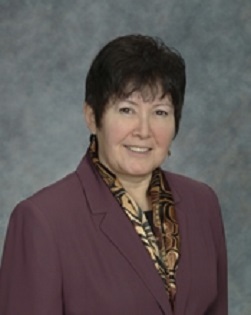 Geraldine VanBibber
Geraldine VanBibber

Commissioner from December 1, 2005, to December 16, 2010 (appointed at the age of 54)
Geraldine VanBibber was born on July 3, 1951, in Dawson City, Yukon. She was instrumental in creating the book, “At the Heart of Gold” on the history of the Yukon Commissioners. During her term, her focus was on community, youth and history. During her appointment, the Commissioner’s Levee moved back to the Main Administration Building and she hosted a New Year’s Tea on January 9 in Dawson City. In 2006, she was the first Commissioner to dissolve a sitting government and call an election. Also, in 2006, VanBibber became the first Vice-Prior of Yukon in the Most Venerable Order of the Hospital of St. John of Jerusalem and a year later the first Yukon Dame of the Order of St John. In 2007, she had the Yukon Coat of Arms formally registered.
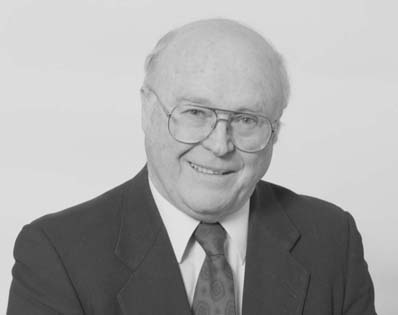 Jack Cable
Jack Cable

Commissioner from October 1, 2000, to November 30, 2005 (appointed at the age of 66)
Jack Cable was born on August 17, 1934, in Hamilton, Ontario. He was a member of the Yukon Legislative Assembly in the 1990s.During his term as Commissioner, he was well known for his careful review of documents and Orders in Council. He worked with the Legion to organize the High School Battlefields tour projects. He continued with the Commissioner’s Potlatches. It was during his time as Commissioner that the Commissioner’s New Year’s Levee moved to the Elijah Smith Building from the Main Administration Building. Cable passed away on July 21, 2021, in Whitehorse, Yukon.
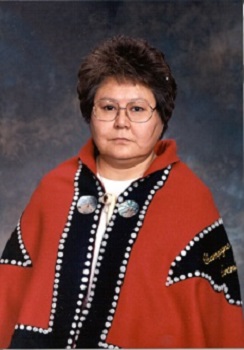 Judy Gingell
Judy Gingell

Commissioner from June 12, 1995, to September 30, 2000 (appointed at the age of 48)
Judy Gingell was born on November 26, 1946, at Mile 710 on the Alaska Highway outside of Rancheria, Yukon, on her grandfather’s trap line. Being the first aboriginal Commissioner, one of her priorities during her term was to bring the First Nations people and culture to the forefront of Yukon society. In 1996 she held a three-day Commissioner’s Potlatch in Rotary Peace Park and invited the Han Dancers to the Commissioner’s Tea. She also held the first Vice-Regal Conference in the North in 1998. Gingell had ceremonial clothing made for special occasions. During her term there were a few significant Yukon anniversaries, including the 100 years of the discovery of gold in 1996, and the 100 years of the Klondike Gold Rush in 1998.
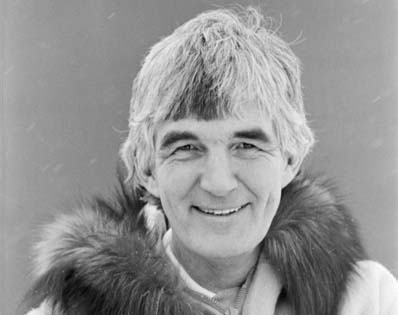
John Kenneth McKinnon
Commissioner from March 27, 1986, to June 11, 1995 (appointed at the age of 49)
John (Ken) Kenneth McKinnon was born on April 20, 1936, in Saint Boniface, Manitoba. His goal was to establish a set term for commissioner appointments. He was the last Commissioner to live in the Commissioner’s Residence in Riverdale and it was sold shortly after he left office. Minister Crombie appointed McKinnon at the Travelodge in Whitehorse. McKinnon was able to get the Commissioner’s recognized in the proper order along with the Lieutenant Governors. He was Chair of the Centennial Activities Committee and during his term there were a few significant Yukon anniversaries. (The 50 years of the Alaska Highway in 1992, and the 100 years of the RCMP in Yukon,). McKinnon died on March 13, 2019 in Whitehorse, Yukon.
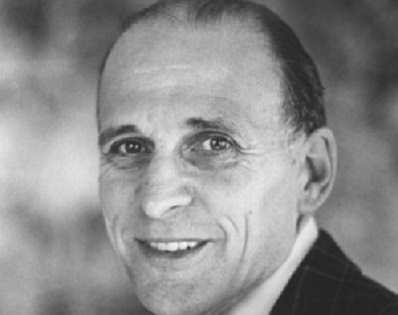 Douglas Leslie Dewey Bell
Douglas Leslie Dewey Bell

Administrator from October 9, 1979, to December 19, 1980 (appointed at the age of 53)
Commissioner December 19, 1980 to March 27, 1986
Douglas Leslie Dewey Bell was born on June 15, 1926, in Moose Jaw, Saskatchewan. In 1980, he started presenting the Commissioner’s Awards at the Commissioner’s New Year’s Levee and had the Midnight Sun Pipe Band pipe in the Commissioner’s party. He organized it as a family-friendly event with no alcohol and a cake cutting. It was during his term that the Commissioner’s medal was designed for the Commissioner’s Awards with a ribbon in the colours of the Yukon flag and a certificate. In 1983, he pushed to have the Territorial Commissioners recognized as part of the Vice Regal family of Lieutenant Governors and the Governor General. In 1984 he requested a royal visit, but Princess Diana was expecting so she and Prince Charles could not come, and Princess Anne came over and thrilled everyone. Bell died on April 18, 2021, in Whitehorse, Yukon.
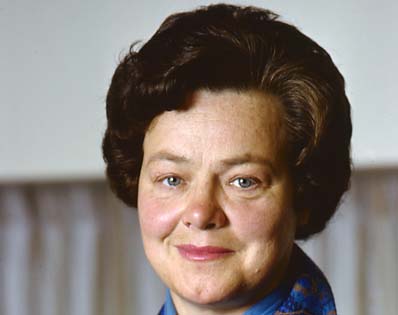 Ione Jean Christensen
Ione Jean Christensen

Commissioner from January 20, 1979, to October 9, 1979 (appointed at the age of 45)
Ione Jean Christensen was born on October 10, 1933, in Dawson Creek, British Columbia. She was the first female Commissioner of Yukon and was offered the position while she was the first female Mayor of Whitehorse. During her term, the territorial government voted to remove the Commissioner’s chair from the house. She found out when she showed up to watch, as she always did, and it was gone. During her term, the Commissioner’s Office was removed from the Main Administration Building, the role of the Commissioner was changed to that of a Lieutenant Governor and the leadership of the day-to-day government was devolved to the majority leader of the Legislative Assembly. She resigned after receiving the new terms of reference as she argued that the transition was too fast and that a more gradual approach to introducing these changes should be taken.
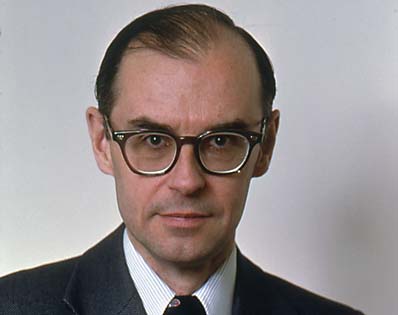 Franklin Boyd Fingland
Franklin Boyd Fingland

Interim Commissioner from October 31, 1978, to January 19, 1979 (appointed at the age of 50)
Franklin Boyd Fingland was born on June 15, 1928, in Moose Jaw, Saskatchewan. Fingland was formerly the Executive Assistant to the Commissioner in 1960 and again from 1966 to 1969. He did not want to be Commissioner long term.
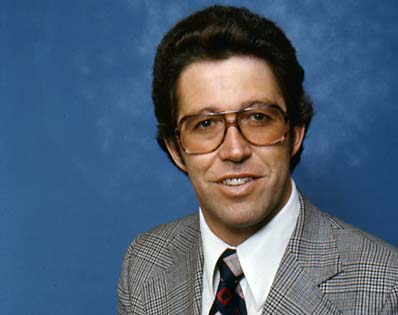 Arthur MacDonald Pearson
Arthur MacDonald Pearson

Commissioner from July 1, 1976 to October 31, 1978, (appointed at the age of 38)
Arthur MacDonald Pearson was born on February 20, 1938, in Brandon, Manitoba. He was a bear biologist and moved to Yukon in 1962. Pearson implemented a new committee structure for Deputy Heads to improve the functioning of the government. He created a Native Advisor position to review everything that went to government for a First Nation view and involvement. He resigned after pleading guilty to charges related to improper mining claim transfers. Pearson died on December 8, 2020.
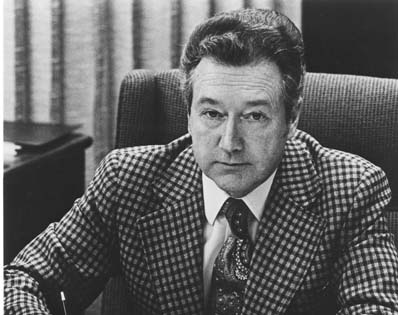 James Smith
James Smith

Commissioner from November 7, 1966, to July 1, 1976 (appointed at the age of 46)
James Smith was born on December 31, 1919, in New Westminster, British Columbia. He was a former Whitehorse City councillor and a former territorial councillor. During his time in office, he was responsible for building the Catholic schools in Whitehorse and Watson Lake, the Klondike Highway to Skagway, the Main Administration Building (on 2nd Avenue), and helped lay the ground for responsible government in Yukon. He was responsible for creating the Commissioner’s Awards, the Yukon Education Grant and the Commissioner’s Tea and Ball. He was a strong supporter of the Arctic Winter Games and was helpful in creating the town of Faro. He was also instrumental in the creation of the Kluane Nation Park and Reserve and for getting the Chilkoot Trail designated as a National Historic Site. Smith was a champion of early land claims. Smith died on April 14, 2017, in Whitehorse, Yukon.
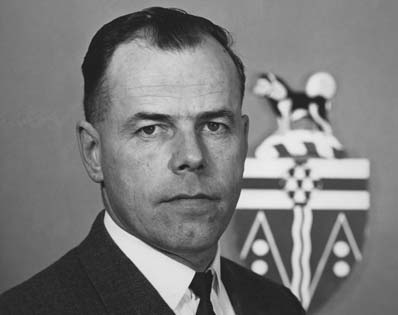 Gordon Robertson Cameron
Gordon Robertson Cameron

Commissioner from May 1, 1962, to November 7, 1966 (appointed at the age of 40)
Gordon Robertson Cameron was born on November 12, 1921, in Pictou, Nova Scotia. He was the first local person to be chosen as Commissioner. Previously there was a policy that the Commissioner would be someone appointed from within the Federal Government in Ottawa. He met Robert Kennedy when he travelled to Yukon to climb a mountain named after his brother John. Gordon was in office when daylight saving time started in Yukon. He was a founding member of the Midnight Sun Pipe Band. He promoted infrastructure and governance reform. He died on August 10, 2010, in Edmonton, Alberta.
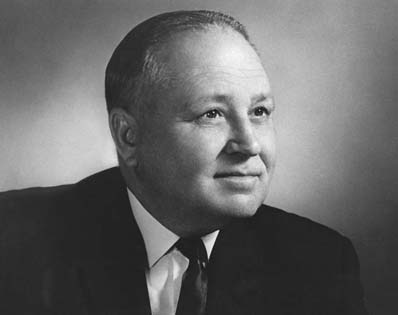 Frederick Howard Collins
Frederick Howard Collins

Commissioner from June 8, 1955, to May 1, 1962 (appointed at the age of 57)
Frederick Howard Collins was born on October 28, 1897, in Bedfordshire, England. He served in the military in both WWI and WWII. He worked with Central Mortgage and Housing to survey the area known as Riverdale and 120 lots were created for sale. He had the Commissioner’s residence in Riverdale built. He welcomed Vincent Massey, Governor General of Canada, during his visit to the territory in April 1956. Collins also welcomed Queen Elizabeth and Prince Philip during their royal visit to Yukon in 1959. The Yukon Act amendments in 1960 provided for an Advisory Committee on Finance appointed by the Commissioner and an increase in the size of the Council to seven members.At their last session in 1961, the Council passed a motion granting Yukon Indian people full rights to vote and stand for election to the Yukon Legislature. In 1961, the new high school was named after him in Whitehorse. Collins died on August 24, 1988, in St. Catharine’s, Ontario.
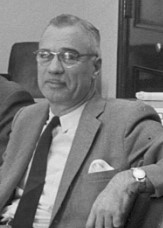 Wilfred George Brown
Wilfred George Brown

Commissioner from November 15, 1952, to June 8, 1955 (appointed at the age of 46)
Wilfred George Brown was born on March 25, 1906, in Carnduff, Saskatchewan. He presided over the move of the Commissioner’s office from Dawson City to Whitehorse in March and April of 1953. He held the first session of the Yukon Council in Whitehorse in the Old Post Office building. He welcomed the Duke of Edinburgh during his solo visit to the territory in August 1954. He sought advice from the Council members about the location for the new Whitehorse Hospital that was proposed across the Yukon River (Riverdale). Brown died on August 23, 1970, in Toronto, Ontario.
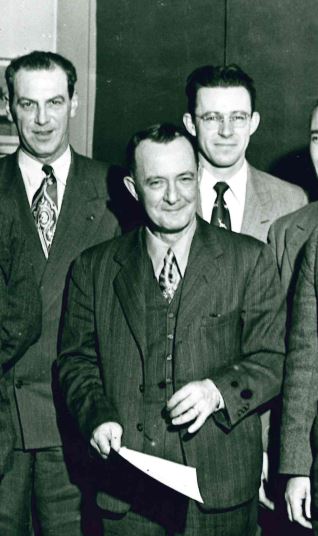 Frederick Fraser
Frederick Fraser

Commissioner from October 15, 1951, to November 15, 1952 (appointed at the age of 55)
Frederick Fraser was born on October 20, 1895, in Revelstoke, British Columbia. He served in the military in both WWI and WWII. In the fall of 1952, he presided over the last session of the Yukon Council to be held in Dawson City before it was moved to the new capital of Whitehorse. He was able to get more grant money for the Yukon from Ottawa. During his time as Commissioner, he was known as “Little Caesar” and the “Ottawa Cowboy” for his biting criticism, closing of popular Whitehorse gambling clubs and the dismissal of some Whitehorse teachers. Fraser died on October 18, 1990, in Vancouver, British Columbia.
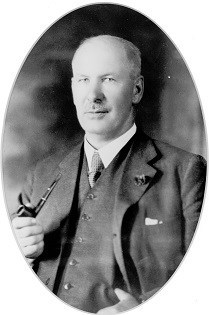 Andrew Harold Gibson
Andrew Harold Gibson

Commissioner from August 15, 1950, to October 15, 1951 (appointed at the age of 67)
Andrew Harold Gibson was born on December 22, 1882, in Perth, Ontario. He was a civil servant. During his term, the Yukon Act was amended to increase the Yukon Council to five members. This increased the Commissioner’s work. He was informed that the Capital would move from Dawson to Whitehorse and had to prepare a report on the cost of moving the capital. In 1950, Gibson and his assistant Vic Wylie flew to Whitehorse to attend the first meeting of the Whitehorse City Council and offer advice. Gibson died on January 28, 1957, in Whitehorse, Yukon and is buried in the Pioneer Cemetery on 6th Avenue.
 John Edward Gibben
John Edward Gibben

Acting Controller from September 20, 1947, to July 12, 1948 (appointed at the age of 53)
In recognition of the territory’s growing stature, the Yukon Act is amended to reinstate the positions of Commissioner and Administrator on June 30, 1948.
John Edward Gibben was born on June 19, 1894, in Middlesbrough, England. Gibben was a magistrate in Yukon before becoming Commissioner. He prepared detailed assessments of the budgets required to upgrade roads, schools and hospitals. This resulted in the first territorial/federal financial agreement to provide significant sums of money for the improvements. He resigned after he was appointed judge of the Territorial Court. Gibben died on January 28, 1958, in Whitehorse, Yukon and is buried in the Pioneer Cemetery on 6th Avenue.
